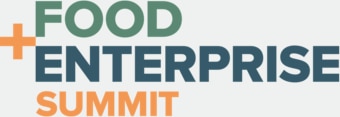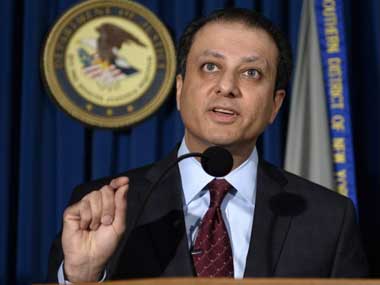Tag Archive for: ethics

Why Your Hiring Process Keeps Missing Candidates’ Character Flaws
Blog In a captivating article for Fast Company ES collaborator David Mayer, of the Ross School of Business at the University of Michigan, outlines “Why Your Hiring Process Keeps Missing Candidates' Character Flaws.”
In a captivating article for Fast Company ES collaborator David Mayer, of the Ross School of Business at the University of Michigan, outlines “Why Your Hiring Process Keeps Missing Candidates' Character Flaws.”
We at Ethical Systems talk a lot about hiring for ethics and culture, as opposed to hiring for skills and personality, during the interview process. The reason is that the dialogue between employer and potential employee is wrought with miscues, overestimations, hyperbole and a reliance on presenting the best possible version of oneself. In addition, research by ES collaborator Nick Epley, and cited in the Fast Company piece, highlights how we are actually less reliable than we may think when it comes to identifying deceits and spotting potential bad apples.

By Design: Ethical Systems conference a great success
Blog Ethical Systems, in collaboration with BSPA, held our first conference, Ethics By Design, on June 3. Thanks to the presenters and attendees, it was the behavioral science equivalent of an all-star game attended by the most passionate fans.
Ethical Systems, in collaboration with BSPA, held our first conference, Ethics By Design, on June 3. Thanks to the presenters and attendees, it was the behavioral science equivalent of an all-star game attended by the most passionate fans.
Close to 80 leaders from the ethics and compliance space, prominent professors from across the country and influential business leaders and thinkers came together to learn from what one participant called “a massive amount of brain power in the room.” And truly, it was. From those who wrote the seminal texts on business ethics to the people in charge of designing ethics programs at top companies, the attendee mix was evenly distributed among both academics and practitioners in order to stimulate dialog, research and connections.

Unethical Amnesia: A Term Big Business Cannot Afford to Forget
Blog Time heals all wounds. Time erodes even the mightiest mountain into a pebble. Time also, as a recent study highlighted in Harvard Business Review, enables people to forget their ethical lapses- a fact that has strong implications for businesses today.
Time heals all wounds. Time erodes even the mightiest mountain into a pebble. Time also, as a recent study highlighted in Harvard Business Review, enables people to forget their ethical lapses- a fact that has strong implications for businesses today.
Researchers found that “memories of unethical actions become obfuscated over time” coining the term “unethical amnesia.” The reason for this amnesia is simple: recalling our own misconduct is a threat to our positive self-image.

Risking Reputation Rarely Rewarded: Lessons From The Lending Club
Blog The recent news about Lending Club is a prime example of the reputational value of business ethics. Last week, The Wall Street Journal reported the company’s twisted fate – it went from receiving a Tribeca “Disruptive Innovation Award” in April (given to then-CEO Renaud LaPlanche) to suffering tumbling stock prices in May, plummeting from approximately $8 on April 1, to a low of $3.94 on the day (May 16th) the WSJ report came out.
The recent news about Lending Club is a prime example of the reputational value of business ethics. Last week, The Wall Street Journal reported the company’s twisted fate – it went from receiving a Tribeca “Disruptive Innovation Award” in April (given to then-CEO Renaud LaPlanche) to suffering tumbling stock prices in May, plummeting from approximately $8 on April 1, to a low of $3.94 on the day (May 16th) the WSJ report came out.

Twice as Nice: On ethics teaching
Blog Can people be taught to be more ethical? While some may say teaching ethics is a recipe for continued headaches and an ongoing, almost Sisyphus-like journey to ensure lessons are absorbed, a new study has positive implications for both academics and practitioners who have dedicated their work to engaging others in ethics education, training and programs.
Can people be taught to be more ethical? While some may say teaching ethics is a recipe for continued headaches and an ongoing, almost Sisyphus-like journey to ensure lessons are absorbed, a new study has positive implications for both academics and practitioners who have dedicated their work to engaging others in ethics education, training and programs.
The as yet unpublished study, covered by Ben DiPietro in The Wall Street Journal’s “Morning Risk Report” and presented at the recent Academy of Management conference, spotlights a key training tactic that will greatly increase ethics knowledge retention and, in the long term, may possibly reduce misconduct.

Guarding Ethics: Azish Filabi’s Keynote at Food and Enterprise Summit
Blog What does it mean to eat and shop “local”? While there is no prescribed territory that those in- and in charge of regulating- the food industry can point to, many will generally agree that it is best to avoid regulation around the appropriate use of the term.
What does it mean to eat and shop “local”? While there is no prescribed territory that those in- and in charge of regulating- the food industry can point to, many will generally agree that it is best to avoid regulation around the appropriate use of the term.
While there is widespread disinterest in having officials involved, when businesses cannot agree on how to accurately define, and ethically use, increasingly common terms like “local” (as well as “sustainable”, “natural’, and “artisanal”) it opens the door to participation by regulatory bodies.
Many are drawn to the local food movement because of a passion for community involvement and realizing their role in local economic development. Intending to start, manage or invest in a purpose-driven business, however, is not sufficient without establishing mechanisms to guard the company’s ethics in the long-run. This theme was at the center of my recent keynote address at the Food & Enterprise Summit in Brooklyn on April 8 (audio now available via the Heritage Radio Network). Our motivation to be ethical can only take us so far- businesses need proper corporate governance, accountability mechanisms, and strong community ties to help guard their ethics as the company grows.

Combating a Culture of Minimalism with Preet Bharara
Blog What does it mean to have an organizational culture of minimalism? On the surface, it results in doing only the bare minimum to avoid punishment from internal or external groups. The more insidious implications means that both shareholders and stakeholders end up disillusioned and disconnected after prolonged exposure to the ennui and modicum of expended energy in actually making positive change.
What does it mean to have an organizational culture of minimalism? On the surface, it results in doing only the bare minimum to avoid punishment from internal or external groups. The more insidious implications means that both shareholders and stakeholders end up disillusioned and disconnected after prolonged exposure to the ennui and modicum of expended energy in actually making positive change.
In a recent talk by U.S. Attorney Preet Bharara as part of NYU Stern Business and Society Program’s Sani Lecture Series, he identified cultures of minimalism as a trending, troubling development in today’s business world. And this is, without doubt, extremely vexing for business leaders, investors, academics and advocates.

Featured Collaborator for April: Jeffrey Kaplan
BlogInterview with Jeffrey Kaplan, partner in the Kaplan & Walker LLP law firm in Princeton, New Jersey
 What are your main areas of research /writing?
What are your main areas of research /writing?
I am principally a practitioner - in the compliance and ethics (“C&E”) field - rather than a professional researcher, and I certainly have not conducted any experimental research. I have done survey research – for the Conference Board (on the role of corporate directors in promoting C&E and on shortfalls in US government enforcement policy vis a vis C&E) and for the Ethics & Compliance Initiative (the “ECI,” which used to be called the ECOA) on conflicts of interest and various C&E program practices. Also, for the past four years I have been assembling and analyzing cases and articles about conflicts of interest (“COIs”) for a blog which looks at various COI issues across varying industry contexts (e.g., what types of interests are cognizable for COI purposes or when should a waiver be permitted) I hope at some point to turn these posts into a book about all things COI-related.

The Global Ethics Summit: Culture at the forefront
Blog Last week, I had the pleasure to attend The Global Ethics Summit, put on by The Ethisphere Institute. The event brought together over 400 people with broad perspectives on managing ethics within organizations, including ethical culture, encouraging speak-up culture, and best practices for Board management.
Last week, I had the pleasure to attend The Global Ethics Summit, put on by The Ethisphere Institute. The event brought together over 400 people with broad perspectives on managing ethics within organizations, including ethical culture, encouraging speak-up culture, and best practices for Board management.
At the plenary on company culture, it was instructive to hear strategies companies are using to address one specific challenge – how do you use the lever of values to change behavior and outcomes in organizations? For us at Ethical Systems, this panel was particularly important because we recognize that creating and maintaining ethical culture within an organization is key to supporting everyday ethical behavior.
Professionalism and Ethical Leadership From General Counsel’s Suite
Blog![]() Among the active debate among compliance professionals, lawyers, and commentators about the proper role of compliance within a corporate hierarchy, there is an emerging consensus that lawyers have become the “loophole finders” and that compliance must step in to protect the firm’s integrity and ethics.
Among the active debate among compliance professionals, lawyers, and commentators about the proper role of compliance within a corporate hierarchy, there is an emerging consensus that lawyers have become the “loophole finders” and that compliance must step in to protect the firm’s integrity and ethics.
Azish Filabi, CEO of Ethical Systems and Jim Lager, ES collaborator, have written a piece for Corporate Counsel that addresses this ongoing conversation. Read the piece on "Professionalism and Ethical Leadership From General Counsel’s Suite." >>
